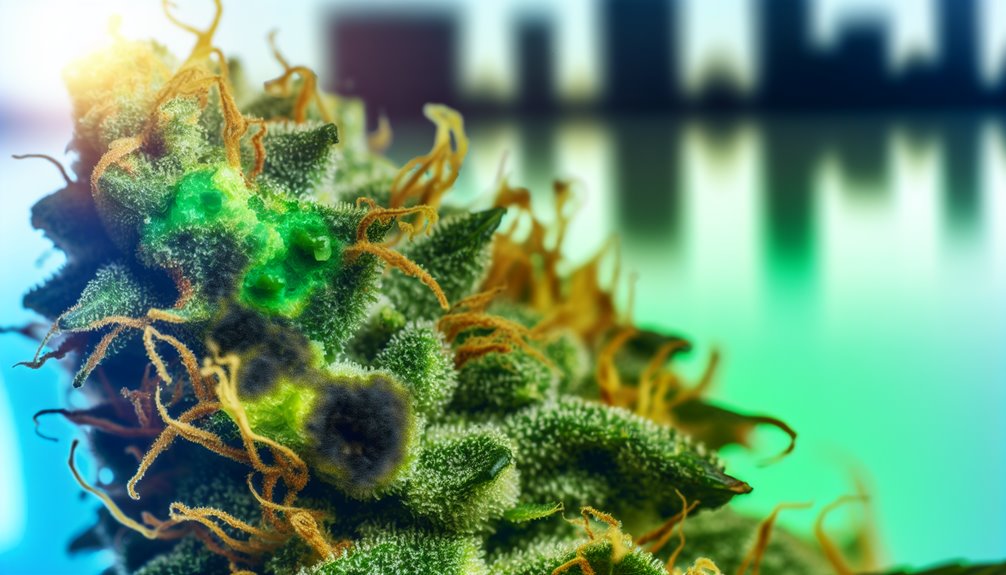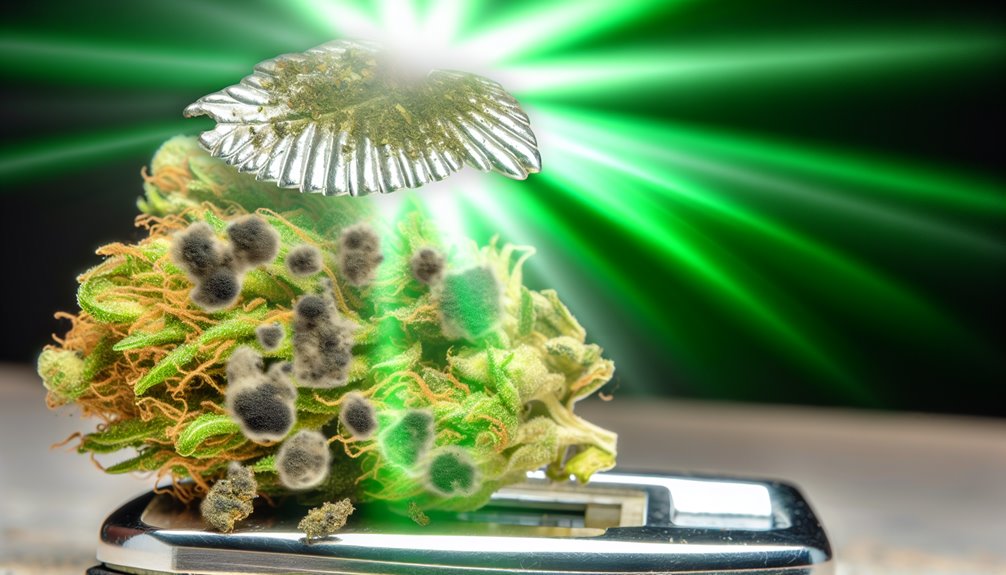Did you know that around 90% of cannabis in the United States isn't tested for mold, according to reports? That's right, despite the growing acceptance of marijuana, the threat of dangerous mold contamination in cannabis products is a real concern. States like Colorado and Massachusetts have reported cases of underreported mold levels, posing serious health risks to consumers. Such molds, including Aspergillus, can lead to severe respiratory issues and infections, especially for those with weakened immune systems. But the issue isn't just the mold, it's the lack of standardized testing protocols that let potentially harmful products slip through the cracks. Want to know the implications of this for you and how possible solutions might be implemented? Stay with us.
The Growing Acceptance of Legal Marijuana Across the U.S

As the acceptance of legal marijuana continues to grow across the U.S, several states are poised to join the movement in 2025. Some states, such as Pennsylvania, Hawaii, and Wisconsin, are expected to vote on extensive cannabis legalization bills. Others, like North and South Carolina, are focusing on medical marijuana legalization. Currently, 24 states have legalized cannabis for adult use and 38 states for medical use. Yet, 11 states lack even a medical cannabis law, while 19 still jail residents for simple possession. These statistics reveal significant cultural shifts and changes in public perception towards cannabis use. Over two-thirds of Americans now support making cannabis use legal, indicating a growing acceptance of this substance in our society. However, advocates are still facing significant political obstacles in states like New Hampshire and Virginia, where legalization efforts are being hindered.
What Is Mold and Why Is It Dangerous?
Mold, a structure formed by specific fungi, often presents as a dusty, colored substance due to spore formation. Mold types vary, but all share a common trait: they can be dangerous to your health.
- Respiratory Issues: Mold exposure can lead to or exacerbate asthma, particularly in children.
- Allergic Reactions: Symptoms like runny nose, sneezing, and skin rash are common.
- Mental Health Risks: Extended exposure can even affect your memory and mood.
Furthermore, certain molds produce mycotoxins, leading to serious health risks, including neurological problems. These health risks are not to be taken lightly. Keep in mind, mold is not just an unsightly nuisance. It's a potential threat to your well-being. Whether you're a caregiver, a teacher, or a health worker, understanding mold and its dangers is essential for serving others responsibly.
Evidence of Mold in Legal Marijuana

While legal marijuana offers many benefits, there is a serious concern for consumers: mold contamination. Labs in Colorado, Massachusetts, and Rhode Island have reported suspiciously consistent mold levels, suggesting possible underreporting of contamination risks to clear products for sale. This manipulation of mold testing results presents a significant health risk for users, particularly those with compromised immune systems. Aspergillus and Fusarium, molds commonly found in marijuana, can cause severe infections and even death. This risk was tragically underscored by the case of Lorna McMurrey, who died after exposure to moldy cannabis dust. The lack of standardized testing methods only compounds this issue, as it allows labs to clear potentially unsafe products. As a consumer, you must be aware of these risks.
State Regulations and Testing Protocols for Cannabis
Steering through the myriad of state regulations and testing protocols for cannabis can be a challenging task. However, understanding these procedures is essential for guaranteeing product safety and overcoming compliance challenges.
Here's a snapshot of what you might encounter:
- Sampling Requirements: Each production batch of marijuana must be sampled and analyzed, with samples representing the entire batch.
- Types of Testing: This includes potency testing for THC and CBD, contaminant testing for pesticides and heavy metals, and checks for residual solvents and foreign matter.
- Compliance: Licensees must collect representative samples for state testing by licensed independent labs.
Staying informed about these procedures helps you navigate the regulatory landscape and guarantee your product meets quality and safety standards.
The Implications of Consuming Mold-Infected Cannabis

If you're considering the implications of consuming mold-infected cannabis, it's crucial to be aware of the potential health risks involved. Mold exposure can cause symptoms like coughing, nausea, and trigger allergic reactions. It can also lead to respiratory problems, such as sinus pain, drainage, and congestion. For people with weakened immune systems or lung conditions, the health consequences can be severe. They are at an increased risk of serious infections from harmful fungi like Aspergillus, Mucor, and Cryptococcus, introduced by mold-infested cannabis. These infections can affect the lungs, central nervous system, and brain, leading to serious health complications. Prolonged inhalation of mold spores can result in significant health deterioration over time, such as chronic respiratory conditions and immune system suppression.
Potential Solutions to the Mold Problem in Legal Marijuana
To combat the mold issue in legal marijuana, there are several potential solutions to evaluate.
- Humidity Control: Maintain low humidity during all stages of cannabis production. Use dehumidifiers to remove excess moisture, minimizing mold growth.
- Sanitation Practices: Regular cleaning and sanitation of equipment is essential. Adhere to good agricultural practices, use disinfectants effective against microbes, and handle finished products with clean hands and tools.
- Mold Remediation Techniques: Employ ozone treatments, UV-C light, and X-ray technology to decontaminate cannabis and neutralize mold spores. Consider remediation to salvage compromised batches, but be aware of the potential changes to the sensory profile.
Lastly, proper cannabis storage is critical. Store in secure, clean, and dry areas, maintaining pest control measures and adhering to compliance guidelines.
Conclusion
You're playing with fire if you ignore the mold issue in legal marijuana. It's essential to understand that what you don't know can hurt you. Mold-infested cannabis poses serious health risks, particularly to those with weakened immune systems. The lack of standardized testing is troubling, and it's high time states tightened regulations. As the saying goes, "an ounce of prevention is worth a pound of cure." Don't risk your health—demand better.
As someone who cares about your well-being, I invite you to take the next step in understanding the implications of mold in cannabis. If you're in Maryland, I encourage you to visit Fells Point Cannabis Docs or give them a call at (410) 401-4200. Their friendly team is ready to help you learn more and ensure you make informed choices when it comes to your health. Don't hesitate to reach out—your safety matters!

